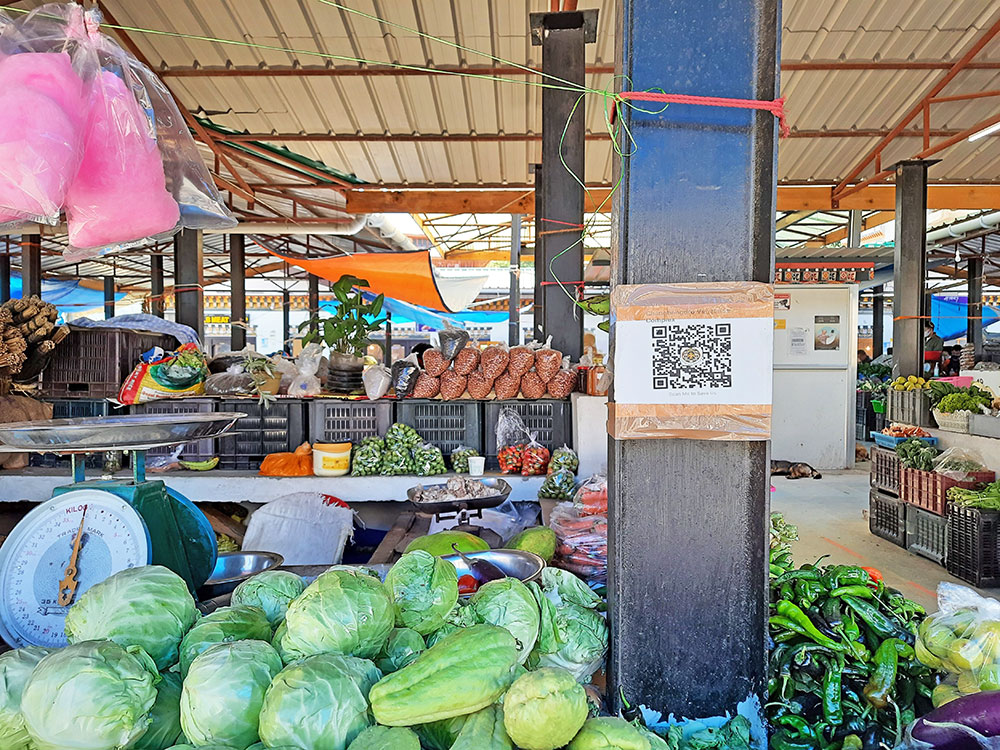Chhimi Dema
With farmers all over the country reporting of their inability to sell farm produces, many people are questioning what the Department of Agricultural Marketing and Cooperatives (DAMC) is doing.
DAMC officials, however, said the agriculture ministry plans to work on a compensation modality if the pandemic situation persists and if farmers go in a total loss.
Farmers of Paro are facing difficulties to market their cabbages, farmers of Samtse could not sell their ginger, Gasa farmers could not sell garlic and Zhemgang farmers are struggling to sell chillies.
DAMC officials said that the ministry was working with the Indian Embassy to expedite the export of the seasonal vegetables, fruits, areca nut, and cardamon in a formal trade procedure.
An official said that when lockdown or travel restrictions including export and import of goods were announced, the agriculture ministry and the Food Corporation of Bhutan Limited (FCBL) buys the farm produces to store, re-distribute internally, and process for value addition.
Records from DAMC showed that the government bought 194MT (metric tonnes) of cabbages worth ngultrum three million as of yesterday through the buy-back scheme activated on June 24.
The buy-back scheme was introduced to provide an assured market for agricultural commodities to ensure that the farmers do not run into total loss and to keep them encouraged for future production.
“Farmer are provided upfront payments on the buy-back scheme rates announced by the ministry, calculating cost of production in addition to 20 percent profit margin or more,” an official said.
The government buys potato, cardamom, areca nut, ginger, cabbage, beans, carrot, maize and paddy under the buy-back scheme.
In 2019, the government bought a total of 50MT farm produces worth Nu 20.74M from the farmers. A total of 3,000MT produce worth Nu 70M was bought in 2020.
The government incurred a loss of more than Nu 2.7M in buy-back of cabbage, and Nu 30M by FCBL last year.
An official said that despite the additional restrictions of export to India and Bangladesh, the government was continuously buying the agricultural produce.
The National Post Harvest Center in Paro, Bhutan Agro Industries Limited, and private sector industries were also buying the agricultural produce from farmers.
Bhutan Agro Industries bought 8.7 tonnes of produces including ginger, radish, green chilli, and mustard seeds in the past six months. Bhutan Agro bought 134kg and 2,353kg of mangoes to make juice and pickles respectively, and 10 tonnes of pineapple.
The ministry has stationed aggregating centres in Damchu in Chukha, and Darachu in Tsirang to help farmers transport their produces to Gelephu.
The official said that farmers could contact DAMC, the regional agriculture marketing and cooperative officers, the dzongkhag agriculture and gewog agriculture extension officers for any agriculture marketing challenges.
Meanwhile, sources alleged that farmers are facing the problem because the ministry and DAMC did not have proper plans.
A retired bureaucrat explained that farmers were encouraged to grow farm produces on a commercial scale without a proper plan. “If the agriculture ministry and DAMC planned properly, such problems would not arise.”
Edited by Tashi Dema


